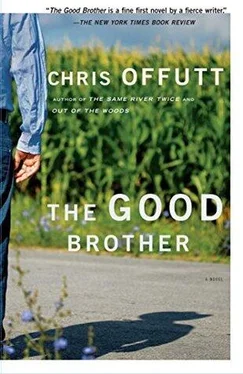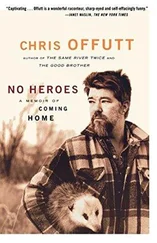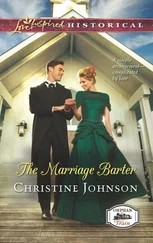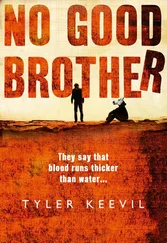Virgil couldn’t imagine leaving Blizzard. He’d lived here thirty-two years. Boyd was the restless one, the wild brother, the one who’d leave one day. Virgil had grown up letting Boyd do the talking and later the running around acting crazy. He drove fast, drank hard, played cards, and chased women. Finally, Boyd had done the dying.
The narrow hall seemed to squeeze Virgil and he felt a need for breath that he couldn’t quite get. He was thirsty. He stumbled outside and smelled honeysuckle vine along the creek. He drove down the road and up the steep dirt lane of his home hill. In his mother’s house, he turned on the faucet and let it run to bring water from deep in the earth. He drank two cups fast. His body recognized the water, its cold taste the most familiar sensation he’d ever known. He breathed through his nose as he drank, his chin and shirt wet.
He was drinking his fourth cup when he noticed his mother and sister watching from the doorway. He set the cup in the sink.
“Mom,” he said. “I ain’t going to that post office no more.”
His mother’s face didn’t change, but the expression of her eyes did. Virgil recognized it as the look she got when Boyd said something outrageous, but she had never regarded Virgil in this manner. He leaned on the sink and looked through the window. It was cracked from the beak of a cardinal that had repeatedly attacked its own reflection.
“Where’s the mail at anyway?” his sister said.
“I left it.”
“Well, shoot, Virgie.” Sara turned to their mother. “I’ll send Marlon directly. I’m glad I married somebody who’s got some sense, even if it’s just to pick up the mail.”
“I Just don’t like hearing that old gossip down there’s all You go, Sara, You’d talk a bird out of its nest.”
“What were they saying?” Sara said.
Beside her, their mother waited without speaking. She had spent most of her life in just such a stance — silent in the kitchen, waiting for news that was invariably bad.
“You don’t really want to know, do you?” Virgil said.
Sara nodded.
“They say that Wayne girl is pregnant,” he said.
“No!”
“Sure is.”
“Which one?”
“Up on Redbird Ridge.”
“I know that,” Sara said. “They ain’t but one bunch of Waynes. I mean which girl?”
“The littlest.”
“Lord love a duck, she ain’t but fourteen.”
“Well,” Virgil said.
“Whose is it? Anybody say?”
“They’s no question of that.”
“Well, who?”
“I hate to be the one to tell you, Sara. But it was your Marlon done it.”
Sara’s face changed color. Her breath rasped into the air. Their mother glanced at her as if to make sure Sara wasn’t going to collapse, then studied Virgil carefully.
“Sara, honey,” she said. “I believe he’s telling a story.”
Sara grabbed a sponge and threw it, bouncing it off his chest and leaving a wet mark on his shirt.
“If you went for the mail,” Virgil said, “you’d know true gossip from wrong.”
“If you can’t fetch mail,” Sara said, “you at least can mow the yard.”
Boyd had taken care of the yard and retrieved the mail. Four months after his death, the family was still trying to divvy up chores.
Five days a week Virgil drove to Rocksalt for work, crossing water at hard turns as the road followed Clay Creek through the hills. In summer the creek dried. Men filled trucks with the flat rock and hauled it to dirt roads. Spring rains returned the rock to the creek.
The road’s official name was County 218, but everyone called it The Road. If they needed to be specific, people referred to it as The Main Road. It had two directions — toward town, and away from town. Every turnoff was a dead-end hollow.
Virgil pulled into the parking lot for maintenance workers at Rocksalt Community College. He left the keys in the ignition to keep from losing them. On one side of the lot were the blue trucks that the crew bosses drove. They were promoted from the crew and usually held the job until death or retirement. Men on salary wore a blue uniform with their first name sewn above the pocket. Virgil was due. Since working full time, he’d put in one year as a utility man, floating from job to job, and three years on the garbage truck. He hoped for a promotion by spring. Virgil dearly wanted his name on a shirt.
The cars in the lot were ten to twenty years old and American-made. They sat low on one side or high on the other. Mufflers hung by wires. Some cars had cardboard taped in place of missing windows. Several were two-toned from salvaged doors, hoods, and quarter-panels that matched the make and model but not the color. The back seats were filled with tools and toys.
Virgil joined a crowd of men in caps who circled a car, drinking coffee from thermos cups and smoking cigarettes. A pup sat on cardboard in the front seat. Rundell Day leaned against the hood. Hair grew from his ears like gulley brush.
“By God, boys,” said a man, “that’s one set-up pup, ain’t it.”
“I had his job I’d quit mine,” said another.
“I’d not give a man two hundred dollars for a pup,” said another.
“That ain’t just any old dog you’re looking at. Hey Rundell, what’s it do for that kind of money? Tricks? Roll over? Punch the clock for you, what?”
“It’ll flat tree,” Rundell said.
“Shit, that dog couldn’t tree a leaf.”
“I ain’t for sure that is a dog, boys. My opinion, that’s a possum in a dog suit.”
“It might have some possum to it.”
“Boys, I don’t know, now. I believe what it looks like ain’t possum a-tall. Take a good long gander now. See them ears. See that mouth hanging open whopper-jawed. Boys, if you was to ask me, that’s one dog looks a lot like Rundell Day,”
“Shoot, I see it.”
“What are you doing, Rundell? Trying to get your kin on the job? Best take it in to see the Big Boss, ain’t you.”
“It’s a dog,” Rundell said. “And it’ll out tree ary a dog you fellers got.”
“Boys, watch out now. Rundell says it’s a dog.”
“Can he guarantee it?”
“Two-hundred-dollar dog ort to live in a tree.”
“I got a three-legged dog that’ll out-tree that pup.”
“By God, there’s something to brag on. A man keeps a three-legged dog around.”
“It’s the kids’ dog. Old lady won’t let me kill it.”
“What else won’t she let you do?”
“She don’t much care.”
“Listen at him. His own wife don’t care. By God, mine was to hear me say that, she’d cut every ball on me off.”
“She’d not need but a butter knife.”
“Time is it?”
“It’s time.”
The men began moving toward the main building where the time clock was. Rundell opened the passenger door and the pup sprang to him, paws sliding on the vinyl seat. Rundell leaned his face for the pup to lick.
“You be good, now,” Rundell said. “Don’t you pay no attention to them boys. You’re a good old dog, yes sir, a good old dog.”
He kissed the dog on the face and locked the door. He and Virgil walked across the lot. Surrounding the town were high hills, their tops in mist.
“You really give two hundred for it?” Virgil said.
“Why, no.”
“What did you give for it, Rundell?”
“You in the dog buying business?”
“No.”
“Then I’ll tell you, Virge, but don’t say nothing. I found that pup on the road this morning.”
“Just giving them something to think on?”
“When I go to sell it, I’ll get a hundred and they’ll think it’s a real deal.”
They opened the blue door of the maintenance building. The men were strung in a line down the hall, at the end of which hung the time clock. It ticked and the first man dipped his card into the slot and went out the door. The line moved forward.
Читать дальше












